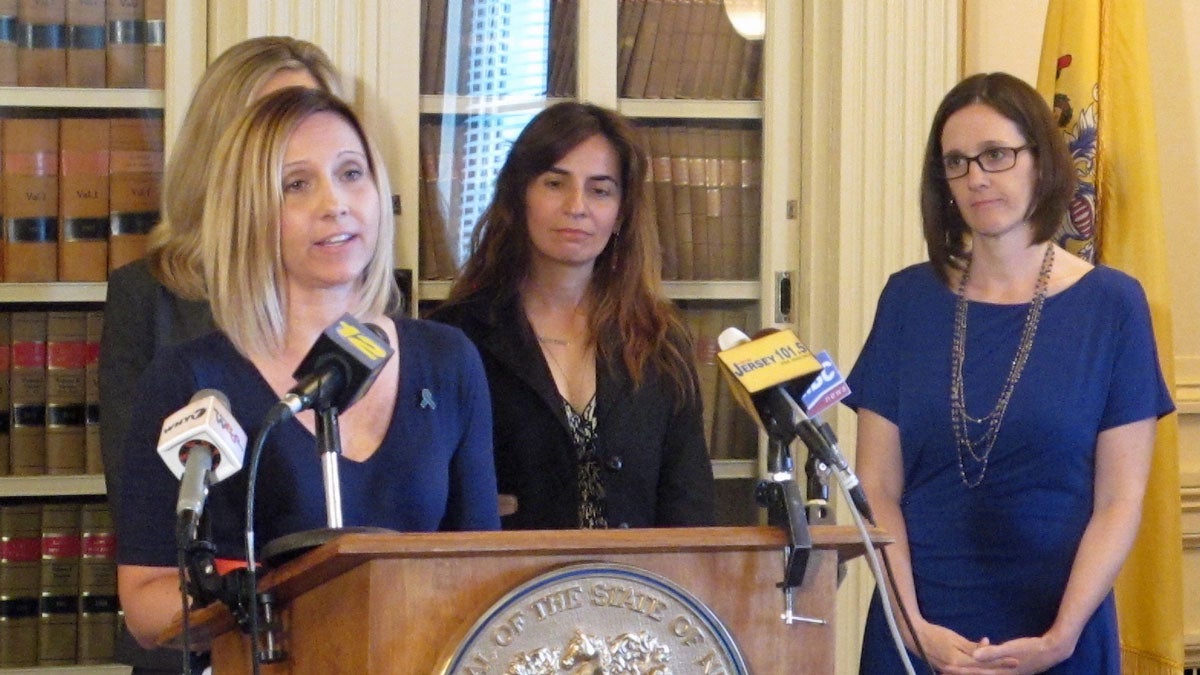Report: What colleges can do to reduce sexual assaults on campus

Task force members say the recommendations reflect the need for college to have clear policies and procedures regarding sexual assaults. (Phil Gregory/WHYY)
After a year of research, the New Jersey Campus Sexual Assault Task Force has issued a 39-page report on steps colleges must take to make campuses safer.
Patricia Teffenhart, executive director of the New Jersey Coalition Against Sexual Assault and the co-chair of the task force, said the recommendations include having every college conduct a sexual violence climate survey to get information from students, faculty and staff.
Students should know where they can confidentially report a sexual assault and have access to counseling and services.
“This is no victim blaming in this report. Clothes don’t rape. Parties don’t rape. People rape. And sexual violence is caused by learned behaviors and unacceptable societal attitudes toward violence,” she said.
New Jersey state Senator Sandra Cunningham sponsored the legislation that created the task force. She said colleges should do everything they can to protect students.
“We want young people to feel that they are safe, that they can be safe to express themselves and to learn all that they can learn. They cannot do that if there is a fear of sexual violence around them.”
Teffenhart said it could take years to change the culture about campus sexual assault. She said many of the task force recommendations reinforce existing federal guidelines, and it will be up to the legislature to decide whether to strengthen them and hold colleges more accountable.
Assemblywoman Valerie Huttle said she plans to introduce a bill that would create a new task force on sexual violence prevention.
“To look at how to change the culture long before the students get to college. So that when students starting high school in September, they can go off to college in four years and not still talking about the probability of one in five students being victims of sexual violence.”
WHYY is your source for fact-based, in-depth journalism and information. As a nonprofit organization, we rely on financial support from readers like you. Please give today.




